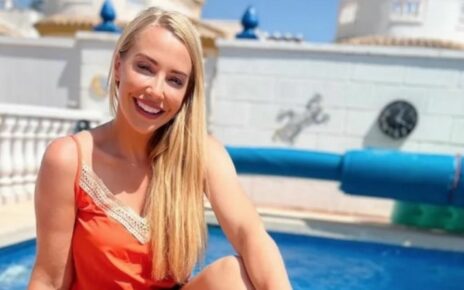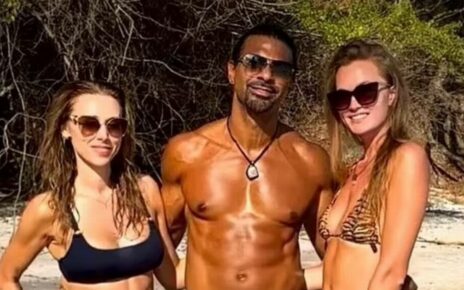Dragons’ Den has been putting budding entrepreneurs seeking investment through their paces for nearly two decades, but what’s it really like to be on the programme?
Hundreds of inventive brains have appeared on Dragons’ Den since it opened its doors in 2005, the show that can actually change the lives of contestants with the financial backing of business experts.
Those who get the chance to go enter the Den are given three minutes to pitch their business ideas to five multi-millionaires who are willing to invest their own money, time and expertise to kick-start the business.
They must decide whether they’re willing to part with some of their wads of cash in order to help the growth of some of the most exciting start-up brands, who are all hoping to become the next Levi Roots himself or summer favourite brand, Skinny Tan, who both flew to success with the help of the series.
The current line-up of formidable Dragons includes Sara Davies (who viewers will also know from Strictly Come Dancing), Deborah Meaden, Peter Jones Touker Suleyman, and newcomer Steven Bartlett, who stepped in as the newest recruit in the 19th series.
They all have stakes in some of the most successful businesses in the country and are absolute experts in their fields.

But what’s it really like to enter the business lair and lay your ideas down in front of the Dragons?
Metro.co.uk spoke to three successful applicants who managed to win investment from various Dragons – Zain Peer of coffee brand London Nootropics, Natalie Quail of dental cosmetics brand Smile Time and Rutger Bruining, who co-founded personalised book brand StoryTerrace in 2015 – to give a bit of insight into the world of the hit BBC series.
Companies are often invited to apply by production
All three of the entrepreneurs we spoke to shared how they were approached to take part in the process by the BBC, but companies can also apply via online application.
Natalie was contacted around a year before she decided to take the plunge after not feeling though it was ‘the right step for the business’ at the time, sharing: ‘We waited another year until 2021 and we thought it was the right time to take the next step and get some really key investors on board that could help take the brand to the next level. We made that application in March 2021. You have to do a couple of interviews, and then an application form and if they’re happy with everything, then you get invited to film about a month and a half later.’

Zain, who appeared on the most recent series, had a similar experience, telling us how surprised he was over being contacted to apply for the show
‘An email just popped into my inbox by a researcher at the BBC, basically inviting us to apply for the show. I showed my co-founder Shez and we thought, this can’t be serious. But his email was a legitimate BBC email. So we replied and said, “Yes, sure.” and it just went from there,’ he shared.
Production do intense background checks to ensure each business is legitimate

Rutger admitted the process was ‘very intense’ in the lead up to the pitch, with proper background checks done on the brand he would be pitching to make sure everything was all in order.
‘I was actually quite impressed that they very seriously looked into the company to make sure that it was a proper company,’ he told us.
Entrepreneurs get feedback on practice pitches to make sure they’re just right
Zain revealed his and business co-founder Shez Shaikh’s pitch was originally much shorter than their allotted time, at around a minute and a half, and had to work on lengthening it for their stint
He explained: ‘The whole actual pitch part is chopped down. It’s three minutes and we had to talk for three minutes straight before anyone said anything, right? We chopped and changed it so much.
‘The BBC obviously give us some feedback and say, “you can’t say this and you should mention this. You should put what percentage [of the business] you want [to give the Dragons] at the beginning of your pitch”, and things like that.’
The pitches last a lot, lot longer than viewers would think

While those tuning in at home only see around 10 minutes max from a business pitch, companies can actually be probed by the investors for up to around two hours.
Rutger told us just how much time the Dragons will spend probing the contestants on their pitches, saying: ‘The pitch, it wasn’t as scary, I would say was just quite different because on TV [viewers are] used to it being 10 minutes. Then you’re there for over an hour, they talk a lot more than you realise. It’s because they’re talking and thinking at the same time, especially Peter Jones. He spoke 10 times more than I did to answer his questions! Sometimes I wasn’t sure where he was going.
‘I think he was just deciding what he thought about what he wanted to ask when he was doing it while he was talking. So that was quite different.’
While the pitching process can be colossal, it flies by as contestants are unsurprisingly full of adrenaline, with Zain sharing: ‘We were in there for about an hour and a half. It felt like 10 minutes, honestly. Literally minutes.’
The BBC will edit out parts from pitches that need verification

Natalie explained she was surprised at certain parts of her pitch that were omitted from the TV show.
But she realised afterwards that ‘there are various reasons’ why the BBC might decide to cut bits out, sharing: ‘One of the reasons can be, they might need to verify an additional figure.
‘Or, if I was speaking about a big retailer, rather than having to go and get consent for that retailer to be mentioned. They might just cut that out.’
Production help work their magic on those amazing pitch displays
One of the questions we’ve always really wanted the answer to, is just who is out there making those displays look so fabulous for the Dragons? Turns out, it’s just the genius that is the BBC production team.
Zain told us: ‘They were they were insanely helpful, incredible. We’d set up a pitch, and they would be like, “You should put this here, how about this?” And they came up with all this black tac stuff that helps sticks everything down.
‘They’ve got a black tac team that literally just makes sure everything’s in place. Before we went to film, they showed us how it looked and said, “Do you like it like this? And this is what stuff is going to be on the camera angle”. So they’re really, really helpful in that sense. They made the whole experience a lot more pleasurable!’
Rutger also remembered a swarm of people coming in to assist and ensure their displays were spot on, adding: ‘You set up your stand, your props. Then [production] come to you with like 15 people including the executive producer. They’re like, “that thing has to go there, this thing has to go there”, and there’s like 10 people pointing and then they move to the next one and it feels a bit that felt a bit… “Oh my God, what is happening here”?’
There is good support available, even after you’ve been shown on TV
Natalie recalled not being left alone for any of the process, and feeling very supported by the production team.
‘They’re quite big on, if after the show if you need any handling of the emotional impact of being in the press and getting, being in the public eye a bit then that they make resources available to you to help you through that if needed,’ she added.
While Natalie didn’t feel she needed the additional support, she always knew it was there, finding that a really reassuring part of the process.
‘It just showed that, in this day and age, having that awareness of there could be a mental health impact helped make it quite a supportive process. They really do try and support you. You don’t feel like you’ve been left in the deep end,’ Natalie told us.
Dragons still show their support even if they don’t end up working with you

Despite being made an offer by former Dragon Tej Lalvani (£90,000 for a 5% stake) and originally accepting, Rutger and co-founder Theo later turned it down.
Inspired by Rutger’s grandparents, the business sees each person’s story turned into a personal memoir, and they are able to choose a package and are assigned a writer that is especially suited to them.
But they’re still connected to Dragon Sara, who loved StoryTerrace and has recently worked with them on getting a personalised memoir made up for her dad.
‘We’re doing a book about Sara’s father. She said on the show that she will buy products and recently we got started on that. She’s very excited about it. So yeah, I think that that’s sort of the biggest link that I have to the programme today,’ he shared.
Dragon’s Den can be streamed in full on BBC iPlayer now.
Got a story?
If you’ve got a celebrity story, video or pictures get in touch with the Metro.co.uk entertainment team by emailing us [email protected], calling 020 3615 2145 or by visiting our Submit Stuff page – we’d love to hear from you.
Source: Read Full Article

